Are you feeling a bit confused about academic policies at your institution? You're not alone; many students find themselves grappling with the nuances of these important guidelines. Understanding academic policies is crucial, as they shape your educational journey and impact your success. Join us as we dive deeper into these policies and clarify everything you need to know to navigate your academic path confidently.

Clear Objective and Purpose
Academic policy outlines the principles and rules governing educational institutions, ensuring a structured learning environment. Effective policies aim for fairness, transparency, and accountability, fostering student success and institutional integrity. Specific objectives include clarifying grading systems, addressing academic misconduct, and establishing guidelines for course registration. These policies, often created in consultation with faculty, administrators, and stakeholders, serve to protect both students' rights and academic standards. Regular reviews (typically every academic year) ensure relevance and adaptation to evolving educational needs, addressing issues such as online learning regulations amid technological advancements, and promoting diversity and inclusion in curriculum development.
Comprehensive Policy Details
In educational institutions, comprehensive academic policies provide essential guidelines governing student conduct, grading systems, and academic integrity. These policies encompass critical areas such as attendance (with specific percentages like 75% for eligibility), grading scales (usually from A to F), and consequences for misconduct (from warnings to expulsion). Essential components often include procedures for appealing grades or academic decisions, criteria for academic probation (typically a GPA below 2.0), and guidelines for handling academic dishonesty, including plagiarism and cheating. Each institution's policy may also outline the roles of faculty and administration in maintaining these standards, ensuring a consistent and fair academic environment for all students.
Stakeholder Roles and Responsibilities
Stakeholder roles and responsibilities within academic policy are critical to ensuring a productive educational environment. Faculty members (professors and instructors) are tasked with delivering course content, evaluating student performance, and fostering academic integrity. Administrators (deans, department chairs) oversee the implementation of academic policies, ensuring compliance with institutional standards while addressing student concerns. Students, as active participants, are responsible for adhering to academic guidelines, participating in their education, and providing feedback on curriculum effectiveness. Additionally, support staff (advisors, librarians) play a vital role in guiding students and providing essential resources. Together, these stakeholders contribute to creating a cohesive academic community that upholds educational excellence and promotes student success.
Relevant Legislation and Guidelines
Academic policies must align with established educational frameworks, such as the Higher Education Act (1965) that governs federal aid eligibility. Institutions are required to comply with accreditation standards set by bodies like the Higher Learning Commission to ensure quality and integrity in education. Policies are also influenced by state regulations, including those outlined by the Council for Higher Education Accreditation, which ensure fairness and accessibility for all students. Additionally, guidelines from organizations such as the American Association of University Professors provide critical benchmarks for academic freedom and faculty responsibilities, fostering an environment conducive to learning and scholarly pursuit. Compliance with these legislative measures is essential for maintaining institutional integrity and promoting student success.
Contact Information for Assistance
The academic policy regarding student assistance provides vital resources for those navigating challenges in their educational journey. Students can reach out to the Student Assistance Office, located in Building B, 5th Floor, Room 502, on campus, which operates Monday to Friday from 9 AM to 5 PM. For immediate inquiries, the office can be contacted via phone at (555) 123-4567 or through email at assistance@university.edu. Additionally, the university's online portal offers a comprehensive FAQ section that addresses common concerns and provides further clarity on policies. For personalized support, students are encouraged to schedule an appointment with an academic advisor, who can help interpret policy details specific to individual circumstances.

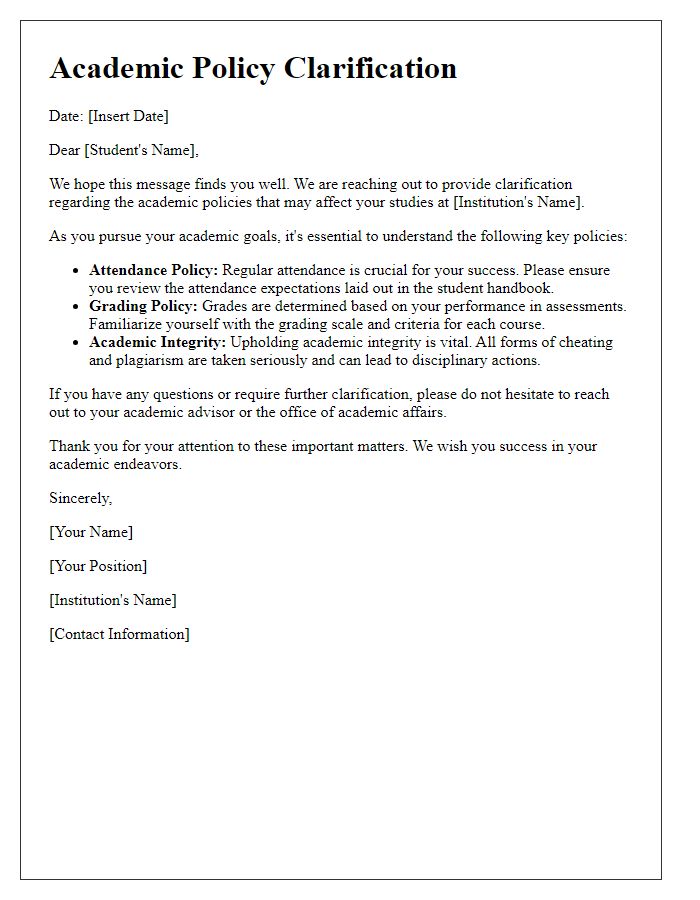
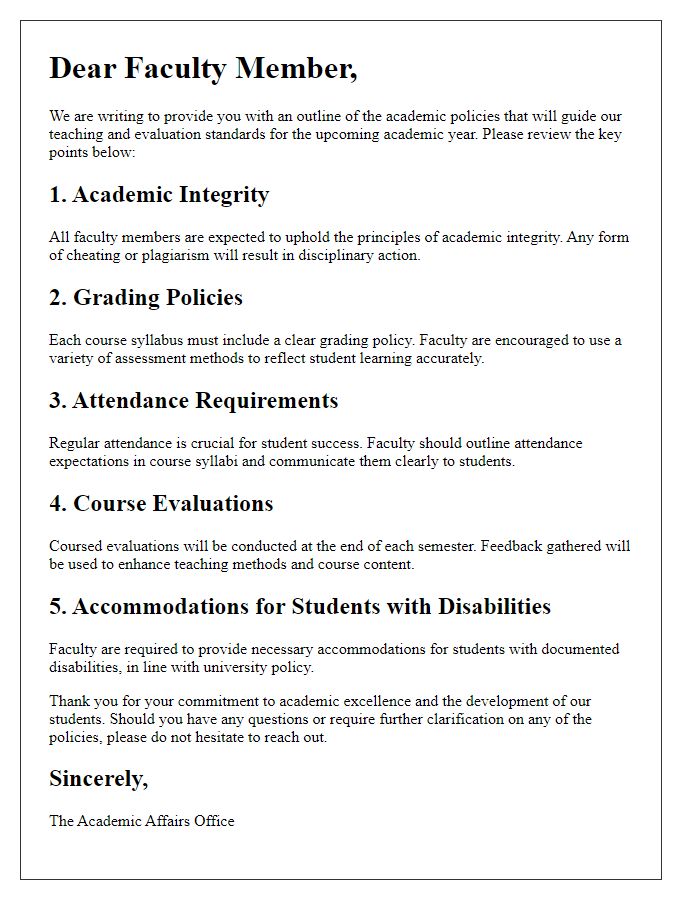
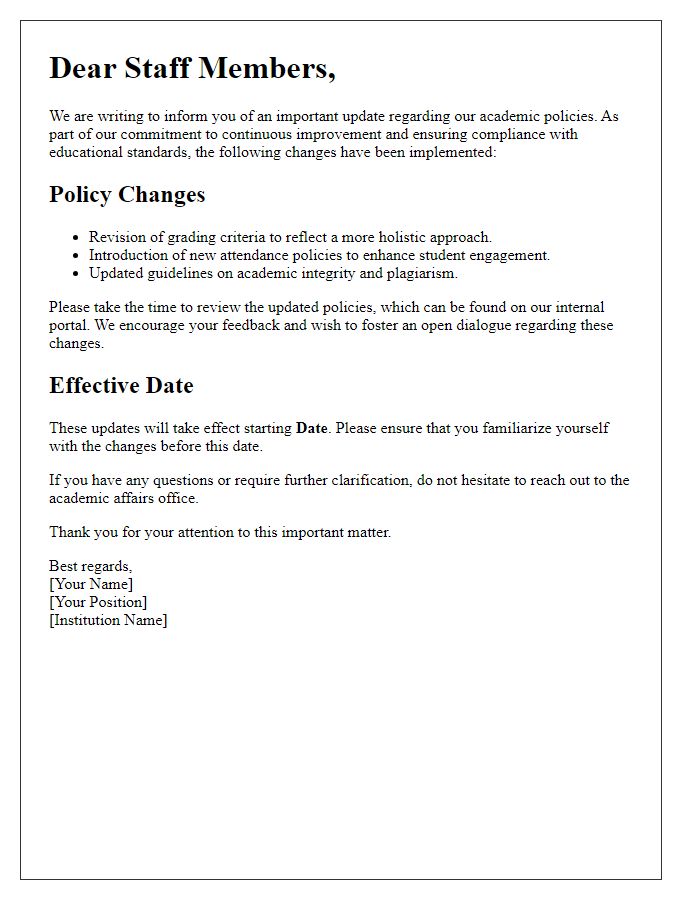
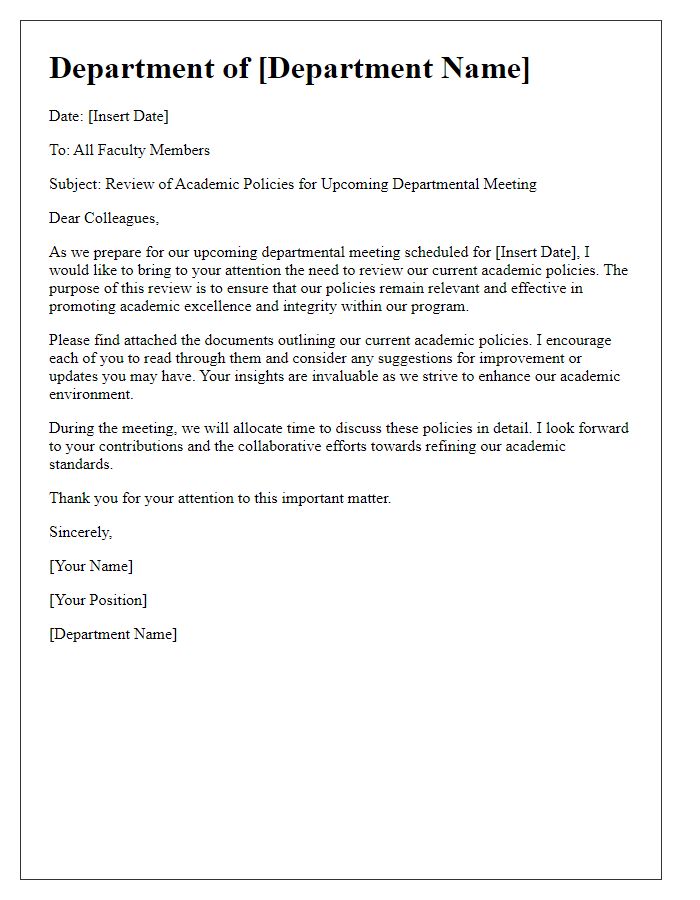
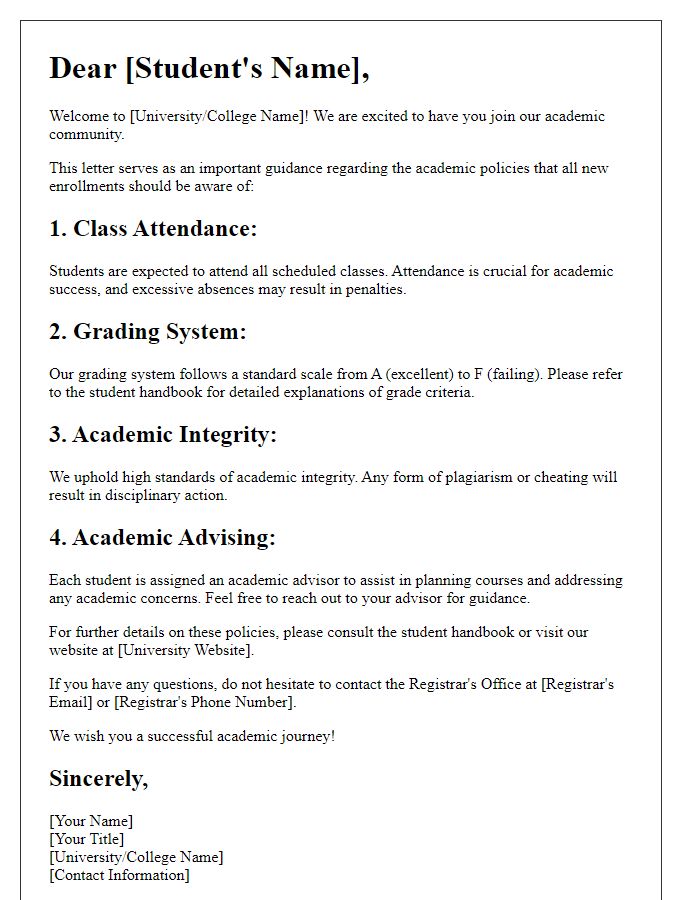
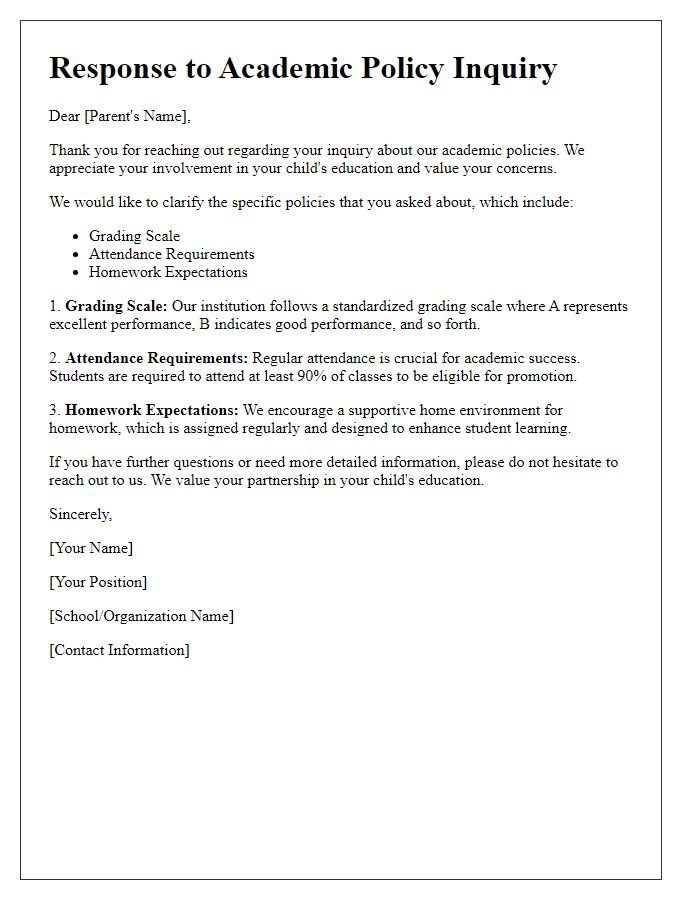
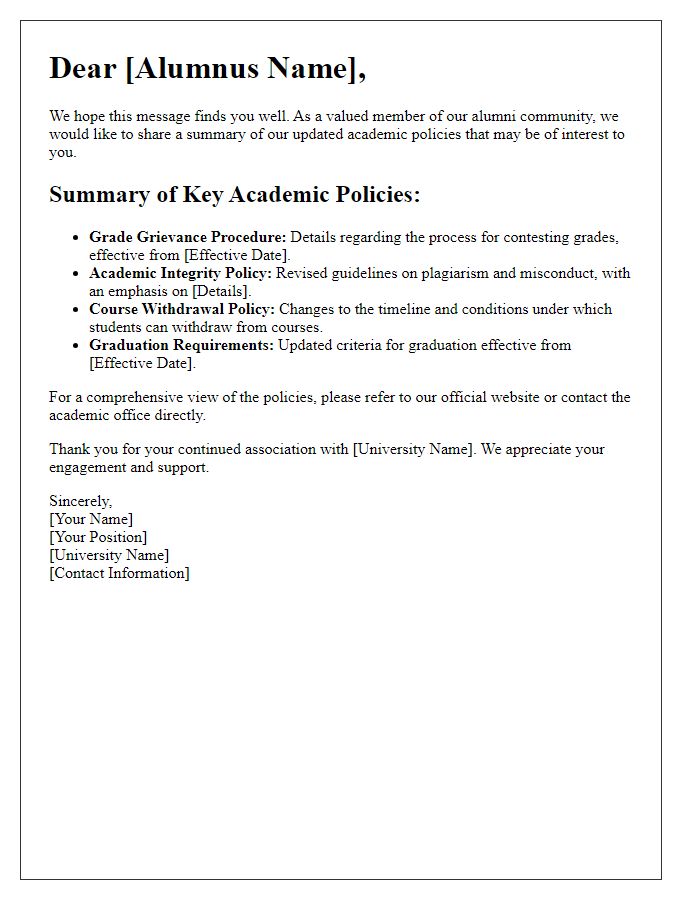
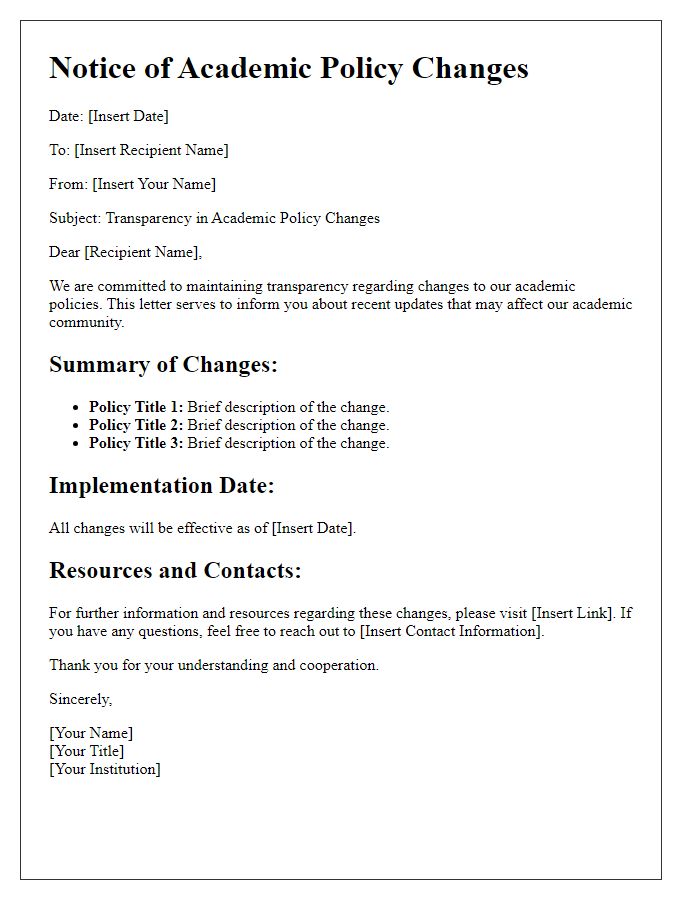
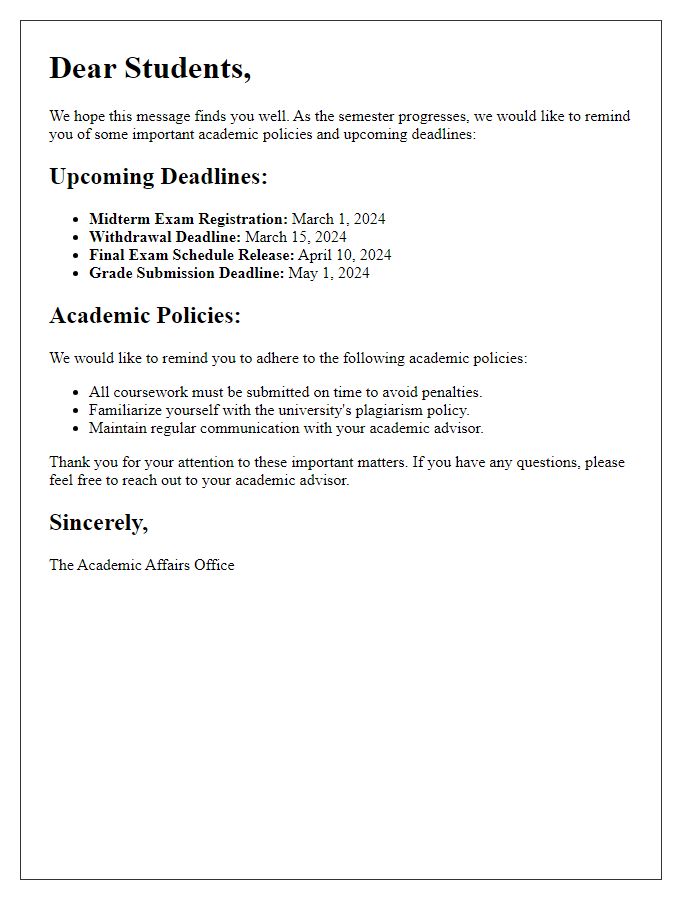
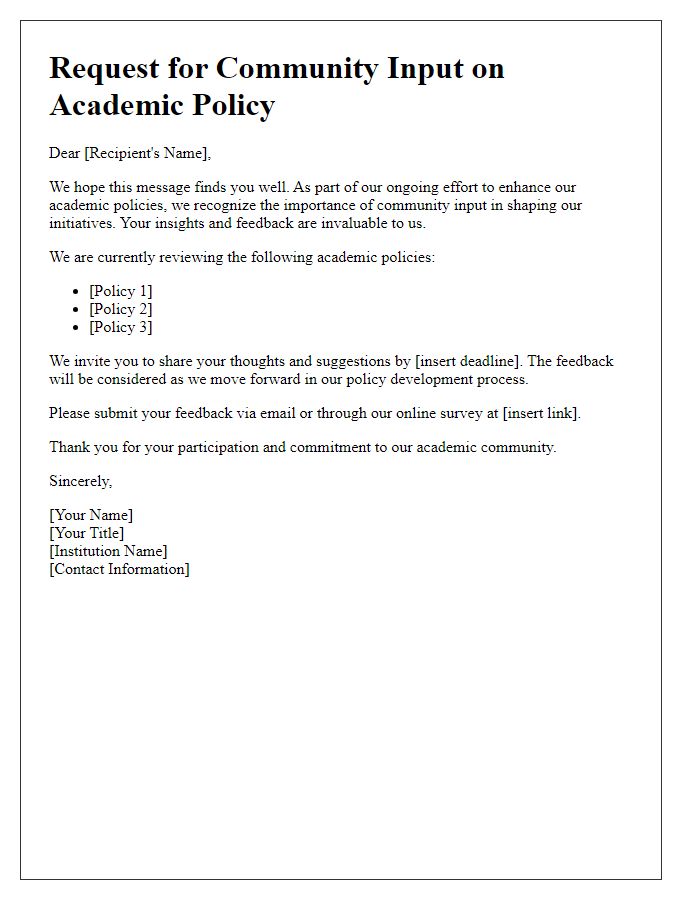


Comments